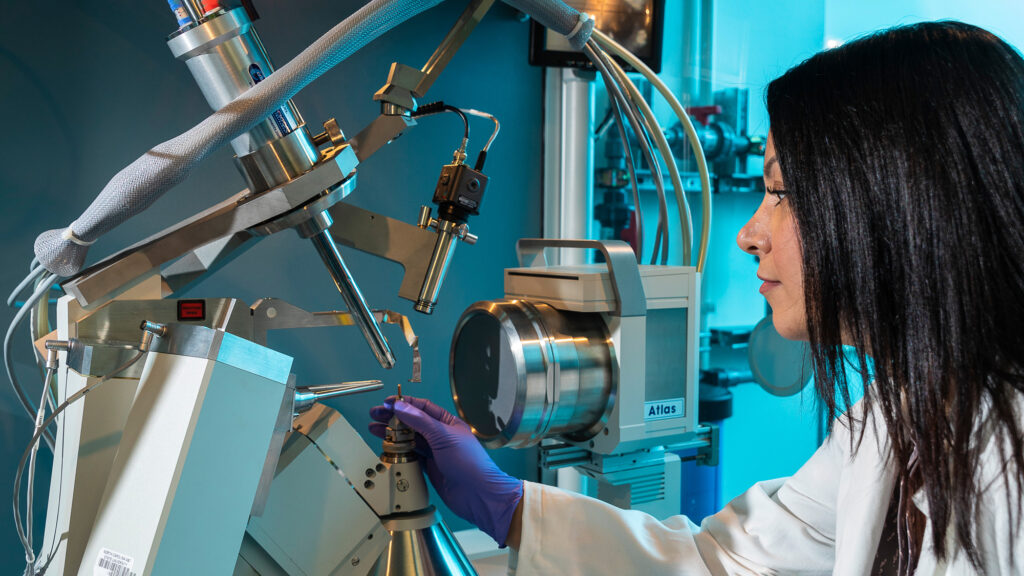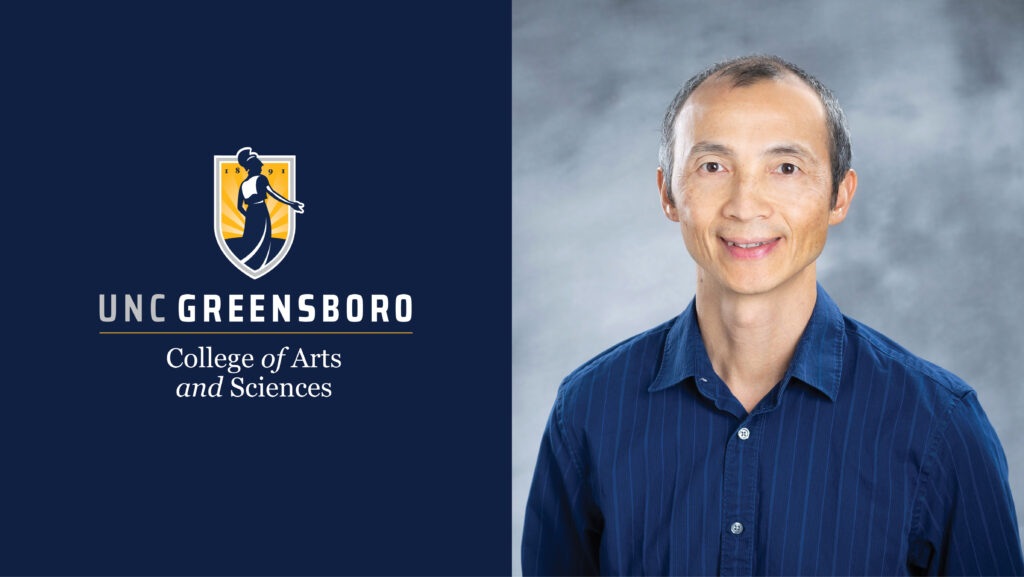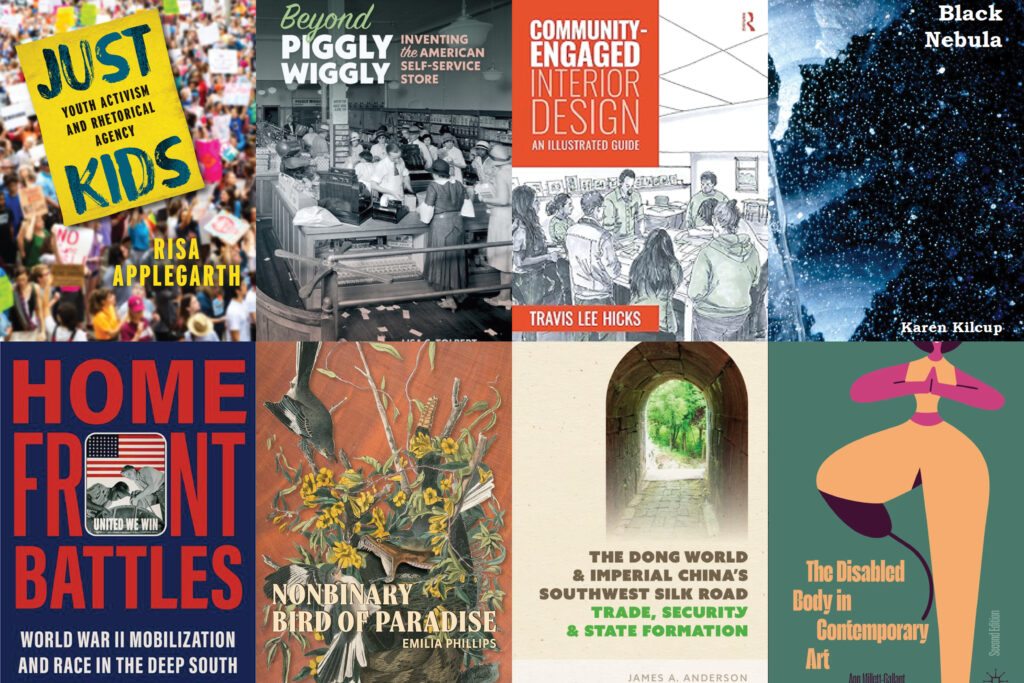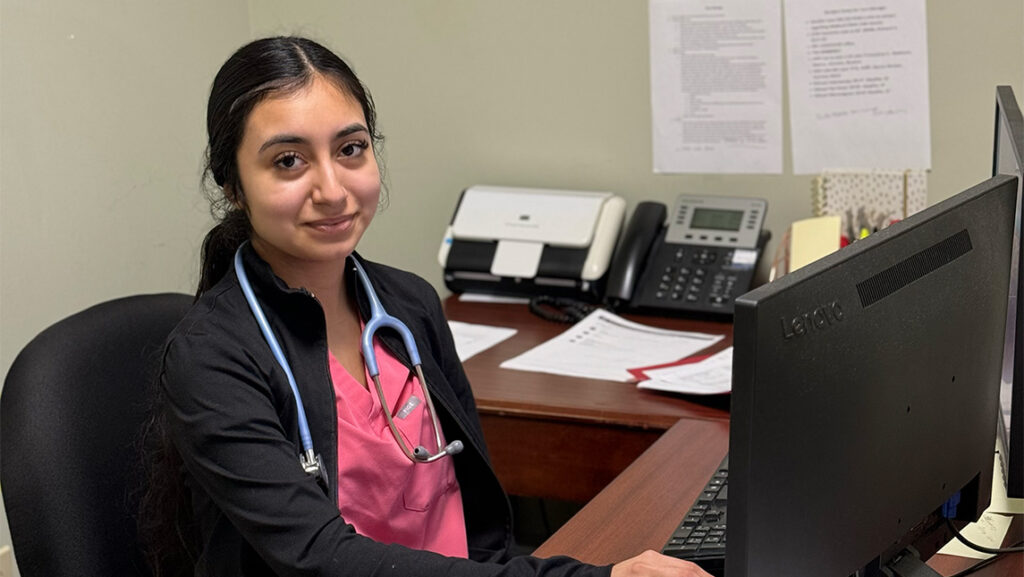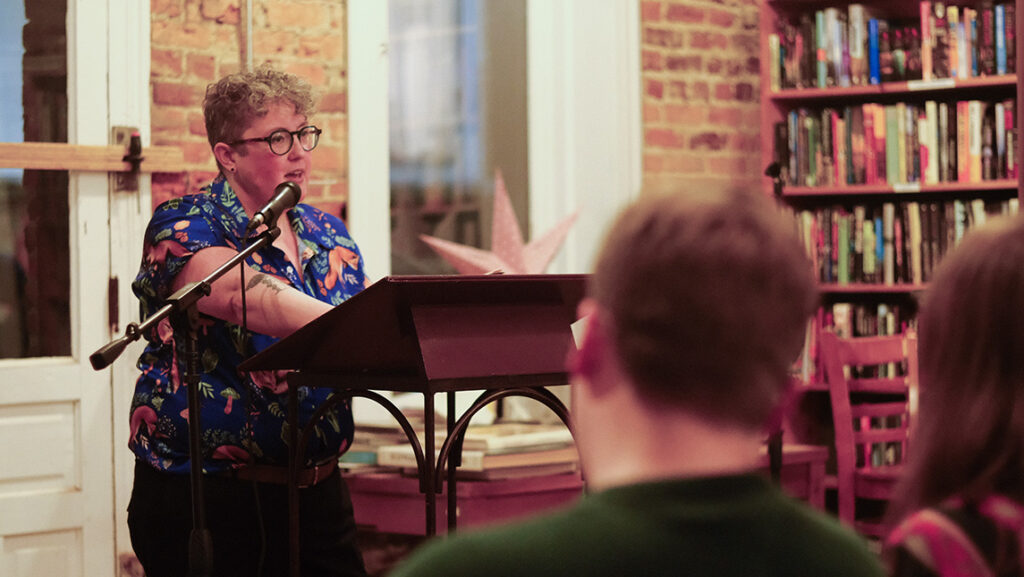
UNC Greensboro Biology alumna (1991) Dr. Tricia Dickens decided to leave her family farm in Idaho to offer her emergency medicine expertise on the front lines of the COVID-19 pandemic in New York City.
The physician is currently working night shifts at a pop-up hospital on Roosevelt Island.
“I knew I had the ability and the capacity to help and could not sit by the sidelines,” Dickens said.
As the pandemic was worsening, Dickens was living at her small hobby farm in Sandpoint, Idaho that she shares with her husband and two daughters (eighth and ninth grade). She found herself glued to the news during what was supposed to be a two-week spring break from her job as a traveling emergency medicine physician.
“What was happening with the patients in New York City was obviously tragic, but there was also another not-so-obvious tragedy I saw unfolding—the stress placed on the health care providers.”
Dickens quickly decided to help where her skill set was needed most. She applied to become a volunteer on the New York Department of Health website and in several other cities. She contacted all her recruiters and answered every email she received seeking relief help.
After nearly three weeks of searching, a recruiter finally contacted her, bringing Dickens to a nursing home facility on Roosevelt Island, which was recently consolidated and converted into an overflow hospital to relieve the overburdened New York City hospitals.
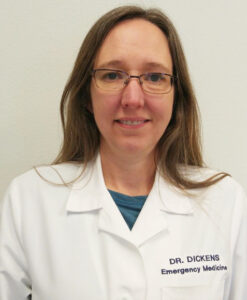
There, Dickens spends her nights helping patients who were previously hospitalized and stabilized but who are not ready to return home, either because they are too weak from the illness, still require oxygen or need to be kept isolated during the 14-day required quarantine. While she is working outside her comfort zone as a hospitalist, her expertise in emergency medicine has been invaluable.
“I bring a skill set that few of the other night physicians have—running resuscitations,” she said. “That skill has already come into play a few times since I have been here.”
As the country gradually starts to reopen, she and her colleagues worry about repercussions. Even though New York City has not lifted restrictions, the number of people out and about has dramatically increased, according to Dickens.
“This is a new virus that is deadly and highly transmissible,” she said. “We are getting to know it in real time and learning new things each day.”
It is estimated that five percent of people infected will require critical care and up to 20 percent will require hospitalization.
“The health care system will be quickly overwhelmed trying to care for that volume of patients. This also puts our entire population at risk if they need health care for other reasons—stroke, heart attack, motor vehicle accident or another trauma. “
The physician urges people to protect the system from such an onslaught.
“Stay home! Stay safe! Stay healthy!”
Story by Elizabeth Keri, College of Arts & Sciences
